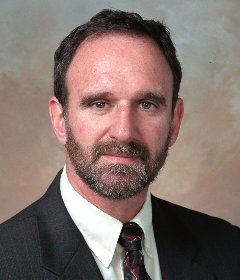Martin Hellman
| Martin Hellman | |
|---|---|
 |
|
| Born | Martin Edward Hellman October 2, 1945 New York City, United States |
| Nationality | American |
| Fields |
Cryptography Computer science Electrical engineering |
| Institutions | Stanford University |
| Alma mater |
New York University (BS, 1966) Stanford University (MS, 1967; PhD, 1969) |
| Thesis | Learning with Finite Memory (1969) |
| Doctoral advisor | Thomas Cover |
| Doctoral students |
Ralph Merkle Taher Elgamal |
| Known for | Diffie–Hellman key exchange |
| Notable awards |
IEEE Centennial Medal (1984) EFF Pioneer Award (1994) Louis E. Levy Medal(1997) Golden Jubilee Awards for Technological Innovation (1998) Marconi Prize (2000) National Academy of Engineering Member (2002) Hamming Medal (2010) Computer History Museum Fellow (2011) Turing Award (2015) |
|
Website ee |
|
Martin Edward Hellman (born October 2, 1945) is an American cryptologist, best known for his invention of public key cryptography in cooperation with Whitfield Diffie and Ralph Merkle. Hellman is a longtime contributor to the computer privacy debate, has applied risk analysis to a potential failure of nuclear deterrence, and (as of July 2016) is writing a book with his wife that links stopping fighting at home to bringing peace to the planet.
Hellman graduated from the Bronx High School of Science. He went on to take his bachelor's degree in electrical engineering from New York University in 1966, and at Stanford University he received a master's degree and a Ph.D. in the discipline in 1967 and 1969. From 1968 to 1969 he worked at IBM's Thomas J. Watson Research Center in Yorktown Heights, New York, where he encountered Horst Feistel. From 1969 to 1971, he was an assistant professor of electrical engineering at the Massachusetts Institute of Technology. He joined Stanford's electrical engineering department in 1971 as an assistant professor and served on the full-time faculty for twenty-five years before taking emeritus status as a full professor in 1996.
Hellman and Whitfield Diffie's paper New Directions in Cryptography was published in 1976. It introduced a radically new method of distributing cryptographic keys, which went far toward solving one of the fundamental problems of cryptography, key distribution. It has become known as Diffie–Hellman key exchange, although Hellman has argued that it ought to be called Diffie-Hellman-Merkle key exchange because of Merkle's separate contribution. The article stimulated the development of a new class of encryption algorithms, known variously as public key encryption and asymmetric encryption. Hellman and Diffie were awarded the Marconi Fellowship and accompanying prize in 2000 for work on public-key cryptography and for helping make cryptography a legitimate area of academic research, and they were awarded the 2015 Turing Award for the same work.
...
Wikipedia
